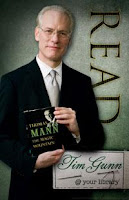Stories about the Internet and China have been a regular part of Morning Edition this week. The filter software required by the feds has nothing on the Chinese government! A former teacher friend turned PhD candidate thinks that I look like Education Secretary. When she wears her glasses, I can see the vague resemblance--if you're squinting.



Though, you'd never catch me doing this:

A handshake and that's it!
Aah, but back to digging. I don't digg. Lots of it comes down to how I want to spend my time and doing some of the social networking is not really something with gathers my interest. And yes, I know may be alone in that, but that's just fine with me. I'm happy to read my copy of Plato in the cave.










